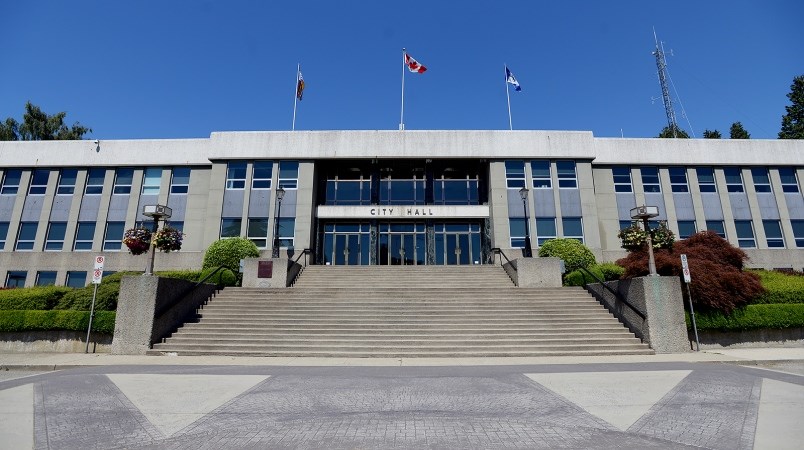Construction of təməsew̓txʷ Aquatic and Community Centre and work on Massey Theatre are among the big drivers in New Westminster’s proposed $167.1-million capital budget.
At an Oct. 4 workshop, finance director Harji Varn said next year’s proposed capital budget includes $120 million for new projects that will start in 2022 and will span over two years, as well as $47.1 million that will carry over from 2021.
“The unexpected fourth wave of our COVID pandemic has impacted and continues to impact,” she explained. “We had originally thought we would be spending about $122.8 million, and we are now forecasting $75.5 million will be spent by year-end. This is largely impacted by the global supply chain disruptions that are really leading to longer lead times in commodities, which is impacting the ability to deliver all projects.”
A report to council stated that issues related to the pandemic include a rise in commodity prices (5% to 30% compared to a more normal 2% to 8% increase) and longer lead times for manufacturing (six or more months for the delivery of vehicles and six to 12 months for the delivery of electric meters). The report also noted some manufacturing facilities shut down because of COVID.
At the capital budget workshop, staff gave an overview of some of the city’s accomplishments in 2021 and a snapshot of capital plans for 2022, showing how they’re linked to council’s strategic priorities.
The $167.1-million capital budget includes: $50.7 million for the təməsew̓txʷ Aquatic and Community Centre; $21.1 million for the Queensborough substation; $10 million for automated electrical meters; $7.3 million for vehicles and equipment; $6.7 million for cycling and greenways; and $5.5 million for water main replacement. It also includes $4.1 million for Massey Theatre; $4 million for sewer separation; $4 million for facilities; $3.7 million for paving/roads; $2.3 million for IT projects; $2 million for land purchases; $2 million for the Sapperton District Energy project; $1 million for fuel tanks; $0.5 million for child care; $0.3 million for Anvil Centre; and $0.1 million for the library.
Council previously approved the 2021 to 2025 capital plan, which mapped out a plan to spend $470.8 million over five years. The city plans to acquire $152 million in new debt between 2021 and 2025, including $71 million in 2022, to support its capital plans.
“As we deliver the much-needed critical capital works, we are responsibly monitoring our financial pressures that will result,” Varn said. “At the same time, we are taking action to manage through a new economy where the property tax system is not only taking care of municipal infrastructure responsibility but it’s also having to stretch and help solve the housing, climate, mental health and opioid crisis.”
Mayor Jonathan Cote said the capital budget aligns closely to council’s strategic plan so there weren’t any surprises with what’s proposed. He said capital budgets are the result of long-term planning that eventually becomes investments in the community.
“I think we also have to recognize we have two major capital projects – the təməsew̓txʷ Aquatic Centre and also the Massey Theatre, which are going to be very large capital projects that are going to be major drivers,” he said. “Although we have been talking about and planning those projects, they are now finally becoming a part of the capital budget. I think that’s largely what’s driving some of the particularly bigger numbers that we are looking at here.”
Lisa Spitale, the city’s chief administrative officer, said staff will report back on some questions raised by council, including information about out-of-school-care in Queensborough, debt levels, replenishment of reserves, funding for the affordable housing reserve, revenue-generation ideas and liveability issues in the downtown.
On Nov. 1, council will have a workshop that focuses on the operating budget and the utility rates. It’s anticipated council will consider a draft 2022 budget and five-year financial plan at a Nov. 15 workshop.
“We are committed to a best practice of trying to finish the entire budget by the end of year,” Spitale said.




